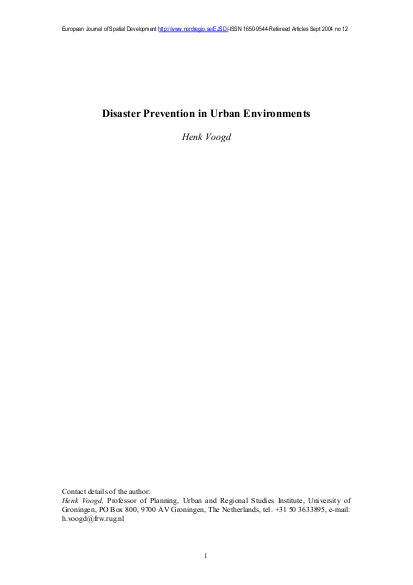
Disasters always have very undesirable consequences, especially when they occur in urban environments. This paper discusses some problems with regard to disaster prevention policy in the Netherlands. This policy was put to the test in May 2000, when a devastating fireworks accident in the Dutch town Enschede took place, destroying a significant part of the built environment of this town, with an investigation by an independent evaluation committee painfully highlighting the failure of the local and national authorities’ preventative policies. The Enschede disaster stimulated many new activities at various levels of government with regard to the need to improve disaster prevention and control. However, recent studies reveal that the lessons of Enschede have yet to be put into practice. This raises questions about the usefulness of a ‘command-and-control’ prevention approach. Alternative approaches are discussed and a comparison is made with the implementation of a Strategic Environmental Assessment (SEA).
Resource collections
- UN Habitat - Urban Response Collection
- Urban Response - Urban Crisis Preparedness and Risk Reduction
- Urban Response Collection - Community Engagement and Social Cohesion
- Urban Response Collection - Economic Recovery
- Urban Response Collection - Environment and Climate Change
- Urban Response Collection - Housing, Land and Property
- Urban Response Collection - Urban Crisis Response, Recovery and Reconstruction
- Urban Response Collection - Urban Resilience